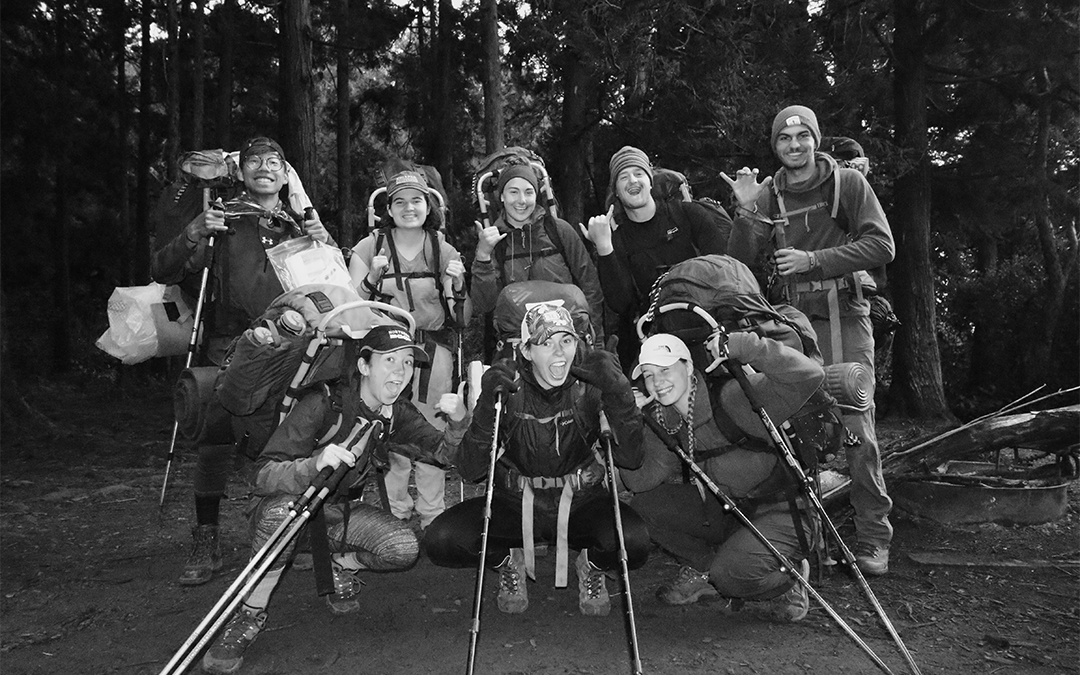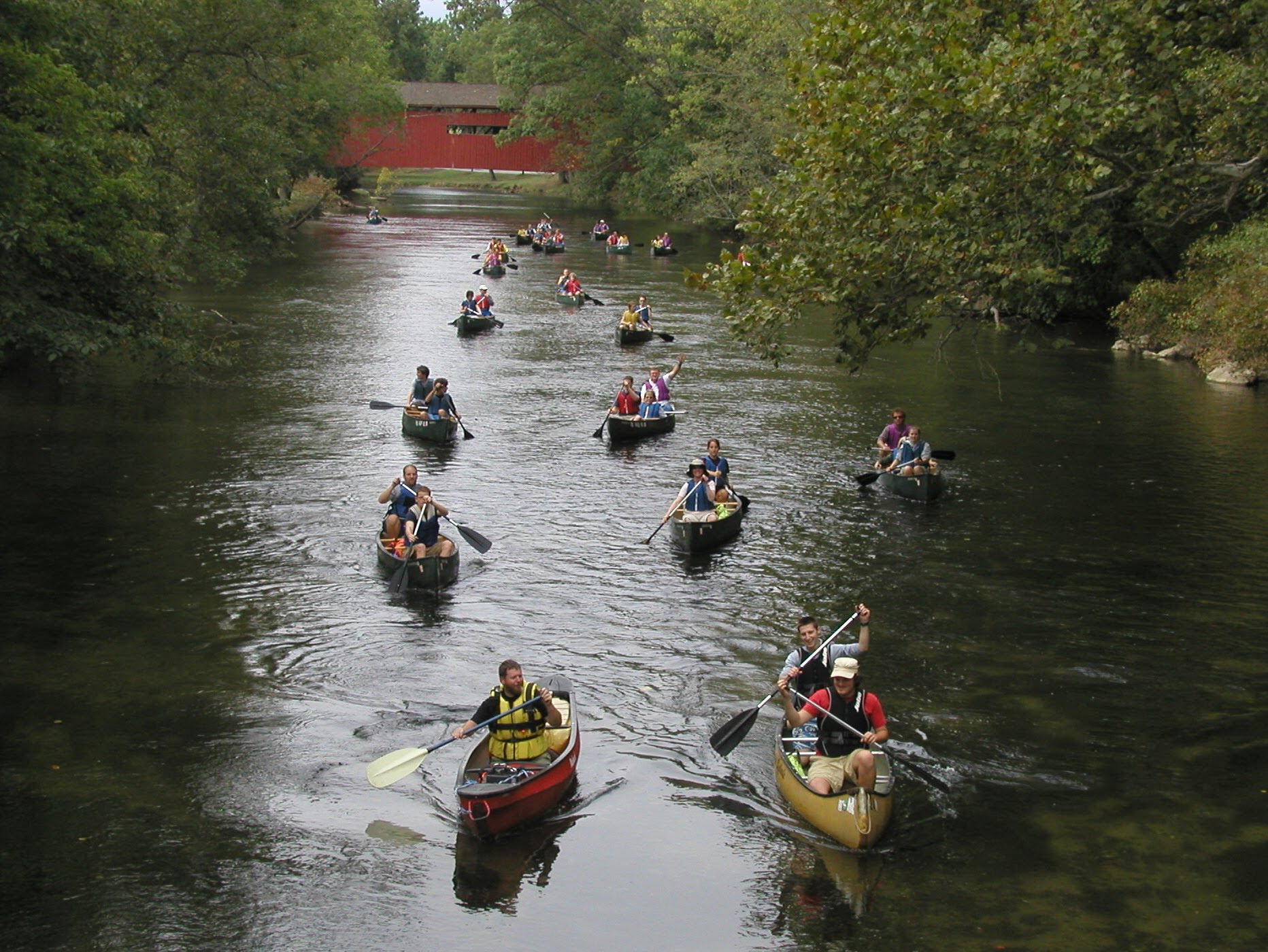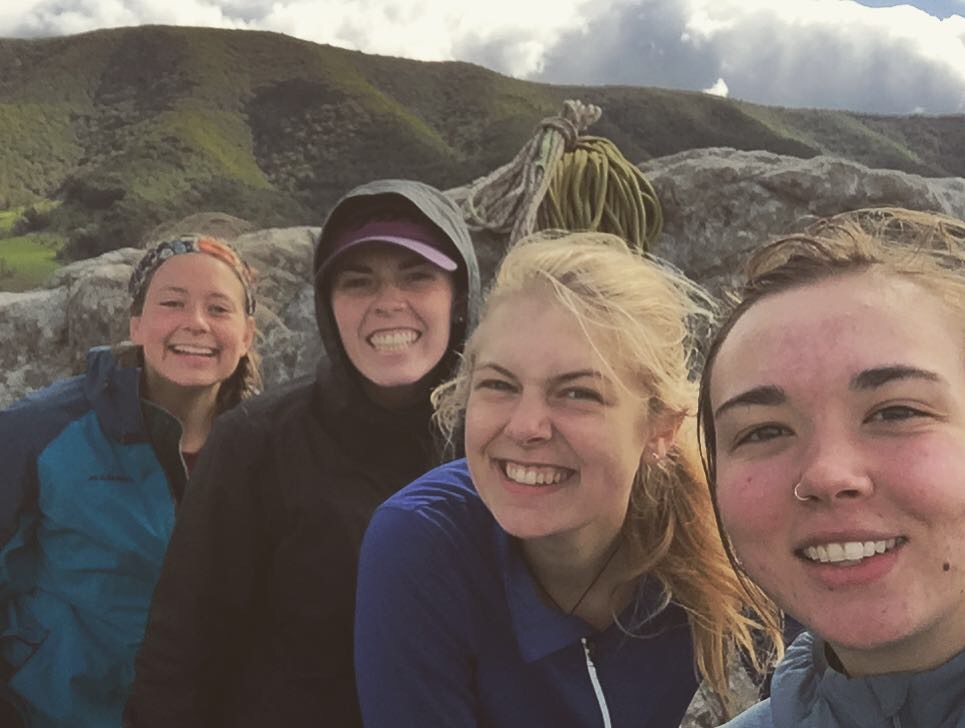By Maddie Conley, Web Content Manager
Raegan McClymont was a first-year student when she went on a spring break backpacking trip in the foothills of Georgia with the Outdoors Club. She loved everything about it – the hiking, the scenery, the company.
“Having time and space to connect with God in a new way, in that setting, was very different than what I had been experiencing in my relationship with Christ during that academic year,” she said.
At the time, McClymont was studying nursing, but she never felt comfortable in her nursing courses. It wasn’t until she laced up her boots and cinched her backpack straps that she discovered a major more fitting for the talents and gifts she already had within her.
And so, she became an Adventure Education major.
Quickly she was immersed in the courses, connecting with the material in ways she did not in her nursing classes. Where nursing had left her unsatisfied, Adventure Education gave her fulfillment.
“I wouldn’t be in school if it wasn’t for this program,” McClymont said.
Two years later, in April, 2019, McClymont found herself crying in class as she heard the news that the program she grew to love would be cut and phased out after four more years.
What’s Happening to Adventure Education?
The Adventure Education major began in the fall of 2004, 13 years after The Loft was started as a partnership between Messiah and the Coalition for Christian Outreach (CCO). Before the major was put in place, Dave Tanis served as the Director of Adventure Programs. He later took on the role of professor. In the summer of 2007, Wendell Witter was hired and began directing the Loft, later instructing Adventure Education courses as well.
After a few job title changes, Tanis now serves as the Associate Professor of Adventure Education programs and Witter is the Coordinator of Cocurricular Adventure Ed programs. However, Witter has been told this is his last year and although Tanis was given two more years, he plans to leave after this year.
“Essentially there are two full-time people, Wendell and I, that help deliver adventure programming here at Messiah College both through the major and co-curricularly through the Outdoors Club and the Loft, and that’s going to be changed to one half-time person,” Tanis said. “That’s a pretty significant reduction in resources towards that kind of programming.”
The college has committed to continuing adventure programming outside the major, Angela Hare, dean of the school of science, engineering and health said.
She explained that the decision to cut the major was “related to low enrollment and not at all about the quality of the program.” The academic department evaluated overall enrollment, including first-year students and transfers in the process of making the decision whether to cut the program or not. Their findings led them to believe that cutting the program would make sense based on the low enrollment issue.
Hare did note that current major students will still graduate with a degree in Adventure Education. However, the school is working to try and get students to complete major requirements by the end of the next academic year.
“If they’re going to make a judgement based purely on that specific standard of numbers and that’s the only criteria to look at, I can’t really argue with that,” Witter said. “I think there’s other factors that the school could choose to look at that determine the value of a major like Adventure Education continuing.”

Impact and Influence
Senior Caleb Schluep hadn’t been looking at Messiah as an option a few years ago—at least not until he discovered the Adventure Education major. He decided to come for the major’s preview day. After meeting the professors and connecting them instantly, he decided to pursue his degree in Adventure Education.
“People in the major become like a family,” Schluep said. “We have really close connections that I have not observed in other majors.”
He’s now in his third year being on the Loft leadership team where he specializes in teaching canoeing. Schluep leads other activities such as team building for various leadership groups on campus.
“My ability to do that is because of the skills I’ve learned in the Adventure Education major,” Schluep said.
Tanis described adventure programming at Messiah as existing in three categories—recreational, educational and developmental. The recreational portion uses adventure activities so that students can simply have fun. The educational portion helps students develop skills and knowledge needed to serve as professionals in the field of adventure programming. Developmental programming is uses intentional activities to promote personal and communal growth, Tanis explained.
“Developmental and educational adventure programming requires a lot more skill and a lot more training,” Tanis said. “I foresee the adventure programming at Messiah moving away from developmental programming—which is primarily what the Loft does now—and more towards recreational, just because it’s easier to train.”
However, to students like McClymont and Schluep, personal growth is what has impacted them the most.
“The whole major is about influencing people. It’s not about what activity you’re doing, it’s about what you’re learning,” Schuep said.
Wilderness Encounter has been one of the developmentally focused courses within the major. Over J-term, students from the major and outside the major go backpacking in either Texas or Hawaii over the course of a few weeks. Their goal is to encounter God, creation, self and others in new ways. This comes through readings, discussions and exercises that the students participate in.
“It brings together people that would have never come in contact with each other,” Emma Stratton, who went on the Hawaii trip, said. “For a lot of people, that’s their first encounter with deep, intentional relationships.
There will be one more Wilderness Encounter course in J-term 2020.
Like Wilderness Encounter, many aspects of the Adventure Education major have reached past the students in the major themselves.
Stratton remembers when she first transferred to Messiah and was welcomed by Tanis.
“He invests in people more than just as a professor,” she said.
Although a communications major, Stratton participated in spring break and Wilderness Encounter trips, along with becoming Communications Executive for the Outdoors Club. Seeing how the Adventure Education program has impacted her, she is concerned for what the rest of campus will miss out on once the major is gone.
“It impacts our whole campus and not just the people that enjoy the outdoors,” Stratton said.
“The whole
major is about
influencing people.
It’s not about what activity you’re doing, it’s about what you’re learning.”
What’s next?
There are a lot of questions about the future of The Loft and the Outdoors Club with the termination of the Adventure Education program. Will the Loft continue to exist as it has in the past? What about the Outdoors Club? What’s next for Tanis? And what about Witter, who has lived on campus for over 10 years?
“I don’t know what’s next,” Witter said. “Most days I’m okay with that because I see God’s faithfulness over the years […] I’m confident that God has something good, even if I can’t see it at the present.”
With all these questions comes sadness and fear, but it is evident that the Adventure Education major has had a positive impact on every student who has been through the program.
“I’m so different than when I came into Messiah and I feel like most of that is because of The Loft and because of the major,” Schluep said.
Adventure Education has, and will continue to leave its legacy through the students it has prepared and sent out into the world. Thanks to the faithful direction of Tanis, Witter, and their commitment to their students, their work, and their God-given passions, students have been able to get closer to creation, find laughter and recreation amidst the stresses of their academic lives. Everyone they impacted could find peace and rest in the comfort of a solid community of people who appreciate the value of spending time enjoying the great outdoors together.
This article can be found in the October issue of the Swinging Bridge Magazine.


















